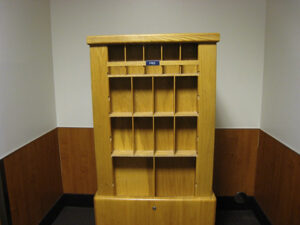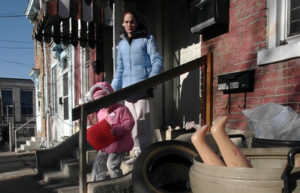At Tuesday’s Board Meeting, the Washtenaw Community College Board of Trustees approved a 50% increase to the per-credit hour fee students currently pay for…. um…
The fee, which is now named the “Infrastructure Fee” had initially been called the “Technology Fee.” According to a news release issued yesterday, the proceeds of the fee will be used to “support technology in labs and classrooms, as well as the college’s bandwidth, network reliability and increased cybersecurity.”
That all sounds good, but realistically, the $10 $15 per credit hour fee will go directly into the General Fund, which covers the cost of everything at WCC, including:
- WCC’s 13 Vice Presidents
- One of the most expensive community college presidents in the State of Michigan
- The Health and Fitness Center’s operating losses
- The Health and Fitness Center’s bond debts
- WCC’s extraordinarily high energy costs
There is neither a requirement nor a guarantee that the “infrastructure fee” will be used for anything the Administration claims in the press release.
The WCC administration has made absolutely no effort reduce expenses or restrict spending. Instead, they cut necessary services like on-campus childcare, and expect the students to compensate for their feeble fiscal management skills. Increasing the “technology fee” by 50% amounts to a 4.77% increase in the cost of attendance. For incoming students, the Trustees have raised the cost of an associate’s degree program by $900.
Raising revenue is as easy as cutting the budget
If the need for additional revenue is so great, the WCC administration should do three things immediately. First, it should raise the cost of online courses for out-of-district students. Right now, the Washtenaw County taxpayers (inexplicably) heavily subsidize the cost-of-attendance for out-of-district online students. If the administration now needs more revenue, it should eliminate that subsidy.
Second, it should strongly encourage students to pursue associate degrees over certificates. After all, the more credits a student pursues, the more revenue the college generates. Keep in mind, WCC managed to LOSE students while overall community college enrollment in Michigan rose by 22,000 students.
Third, it should cut the cost of the upper administration. Despite my valiant efforts, I cannot find a community college in the entire United States with an enrollment of less than 10,000 students per semester that has or needs 13 Vice Presidents.
If the Administration needs still more revenue, it should try cutting its energy bills.
(Ordinarily, the Trustees would raise any or all of these points, but apparently, we don’t have that kind of Trustee in Washtenaw County.)
Infrastructure fee will hurt the poorest students
Now, I will grant that the original plan was to lard a $10 per-credit hour “facilities fee” onto the students. That would have increased the funding available to build the “Advanced Transportation Center” and correct the extraordinary facilities neglect in the Student Center Building. In the grand scheme of things, a $5 infrastructure fee is better than a $10 facilities fee. Ultimately, the administration is still passing the cost of its poor financial management to the students.
Freezing tuition while raising the per-credit hour fees amounts to the same thing: an increased cost of attendance. The people who run WCC may live in a rich community, but the people who attend classes there don’t. Historically, when attendance costs rise at WCC, enrollment drops. And these fees fall most heavily on the community’s poorest students.
According to 2020 data WCC provided to the US Department of Education, it enrolled the highest number of in-district, Title IV-eligible students since 2013. (Title IV funds = federal financial aid, not including COVID-19 relief.) Of those students, more than 55% came from homes with household incomes of less than $30,000.
Placing an additional financial burden on WCC students would be unnecessary if either the administration practiced a higher form of fiscal responsibility, or the Washtenaw Community College Trustees demanded it. Since we have neither, another decline in the fall enrollment should come as no surprise to anyone.
Except possibly the WCC administration and its Trustees.
Photo Credit: Thad Zajdowicz , via Flickr




















































